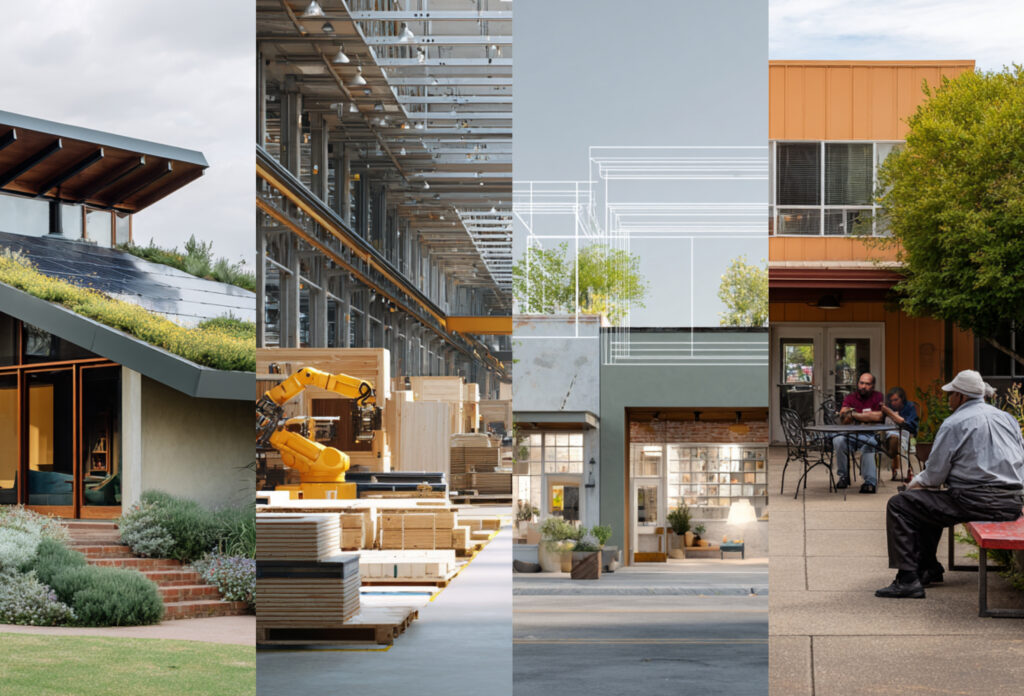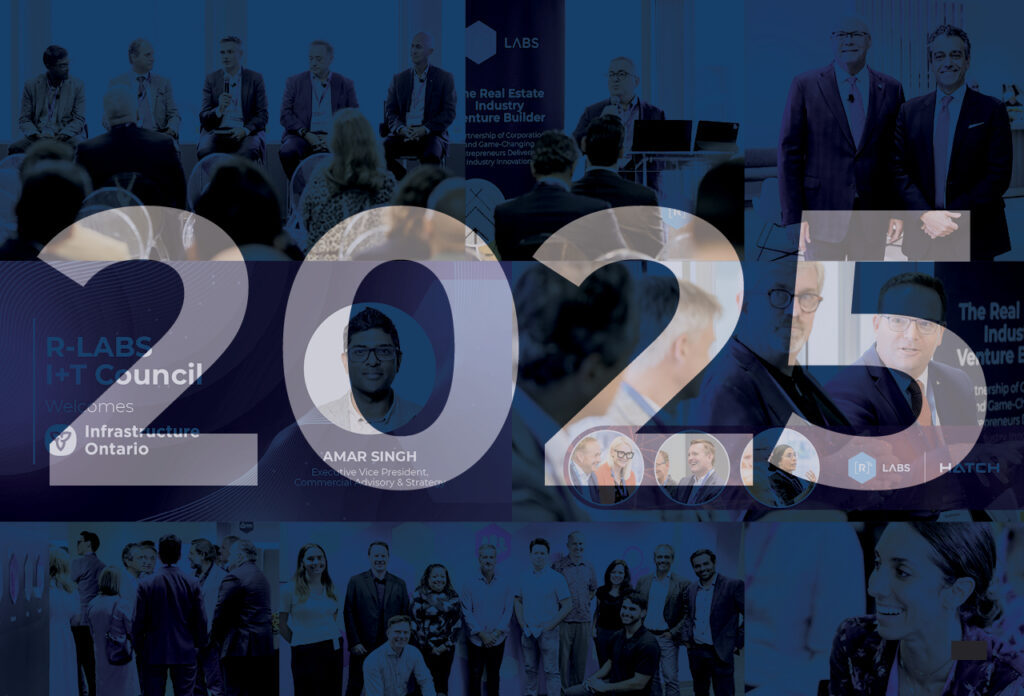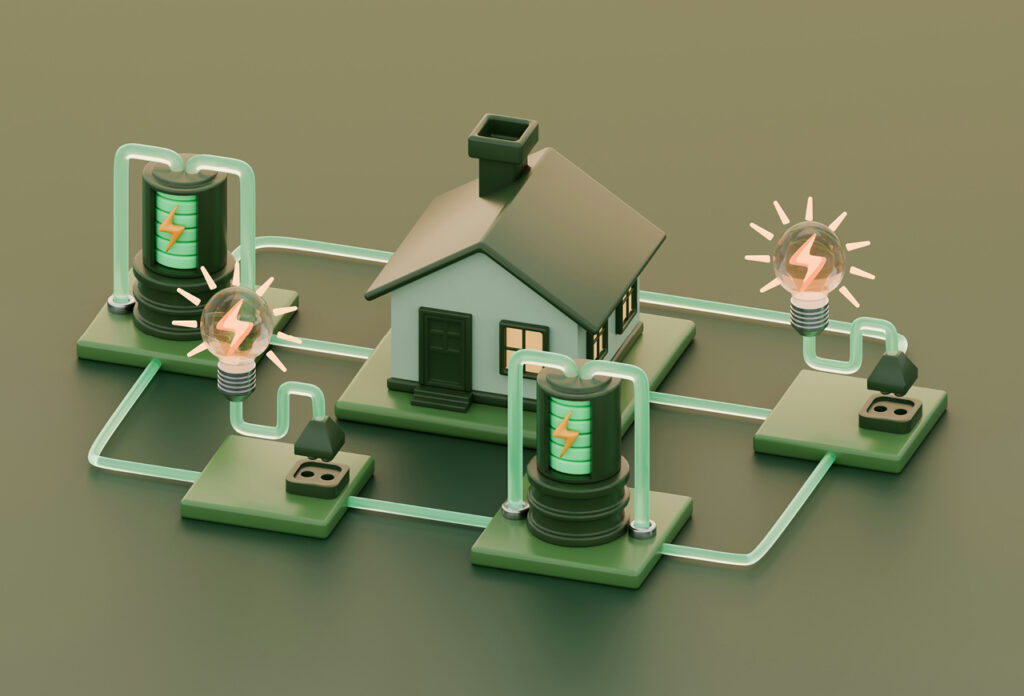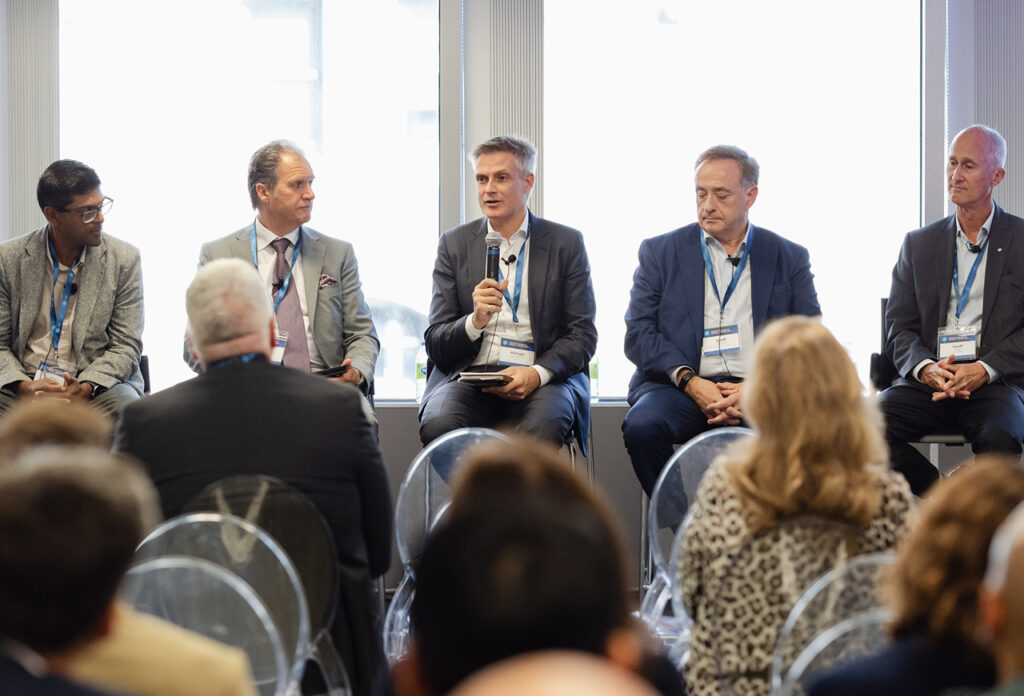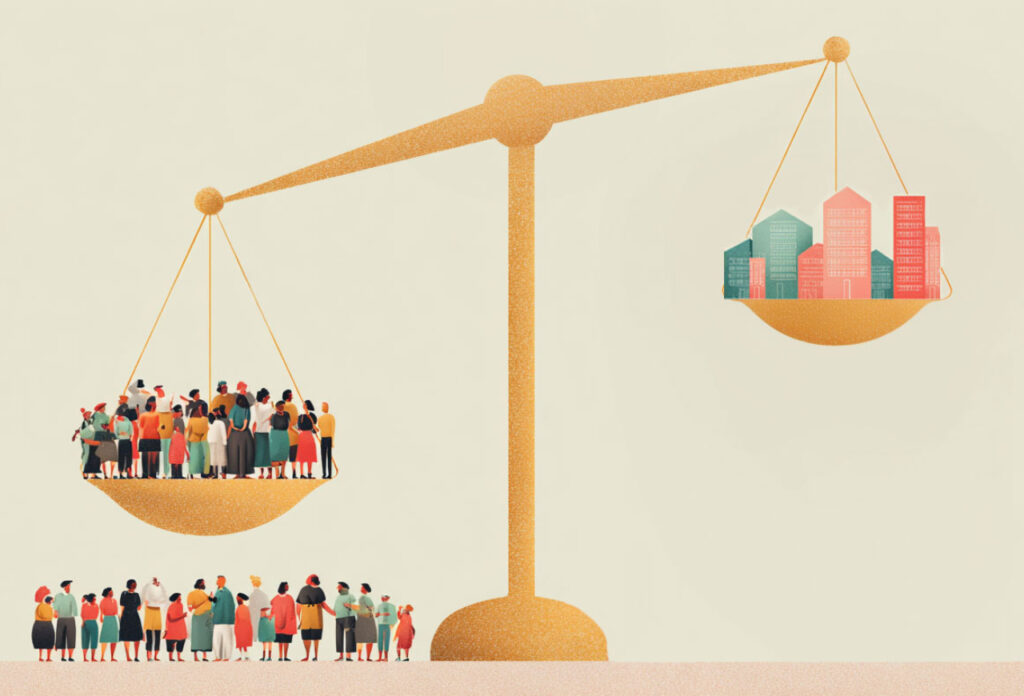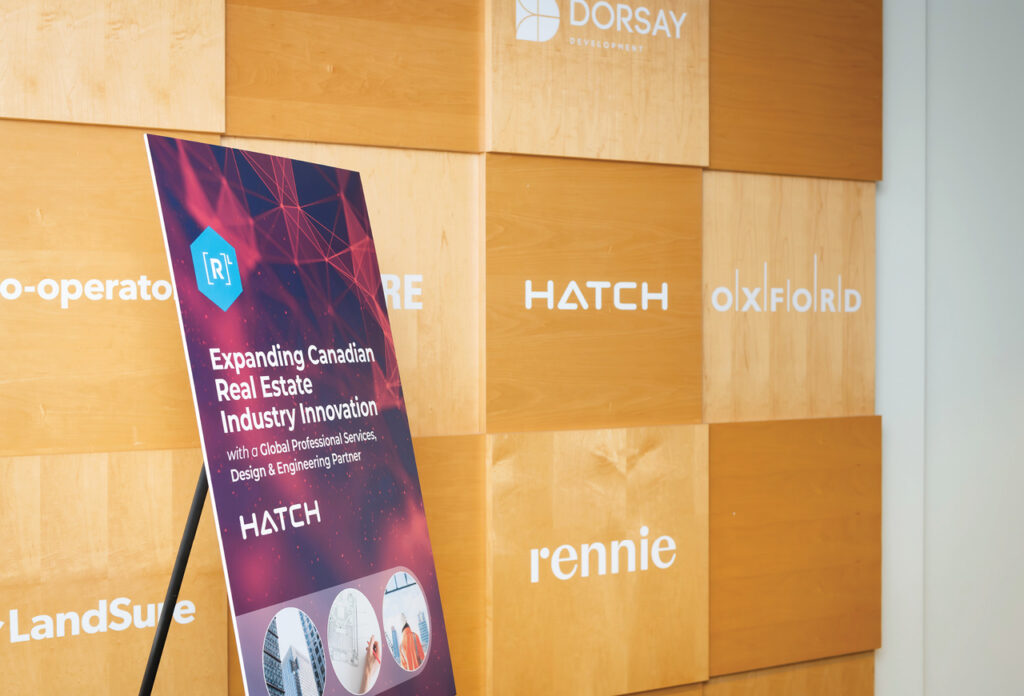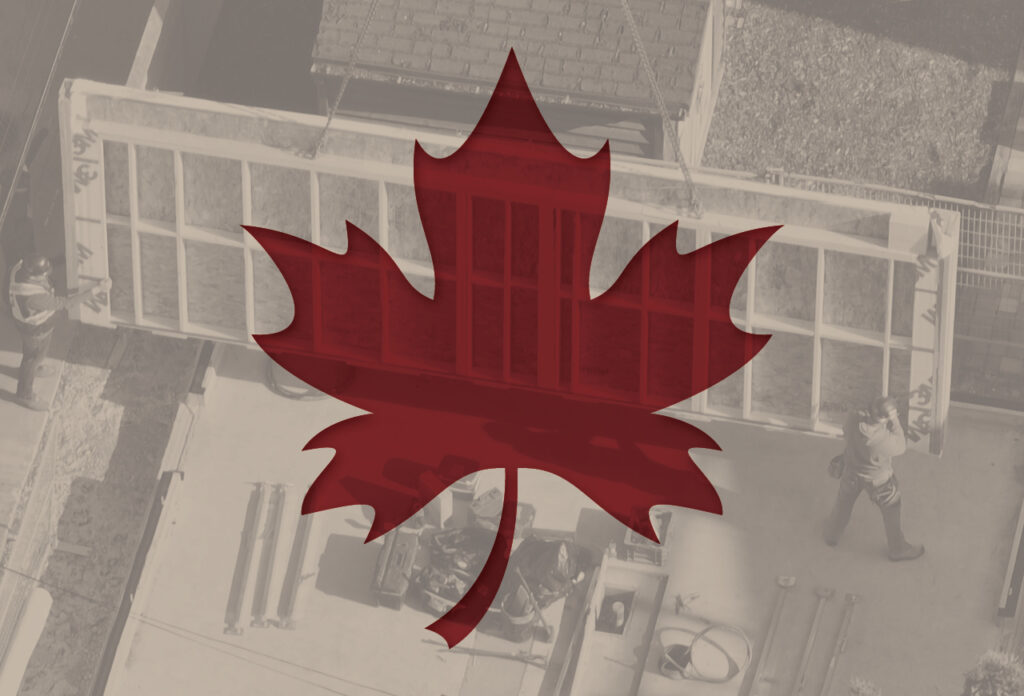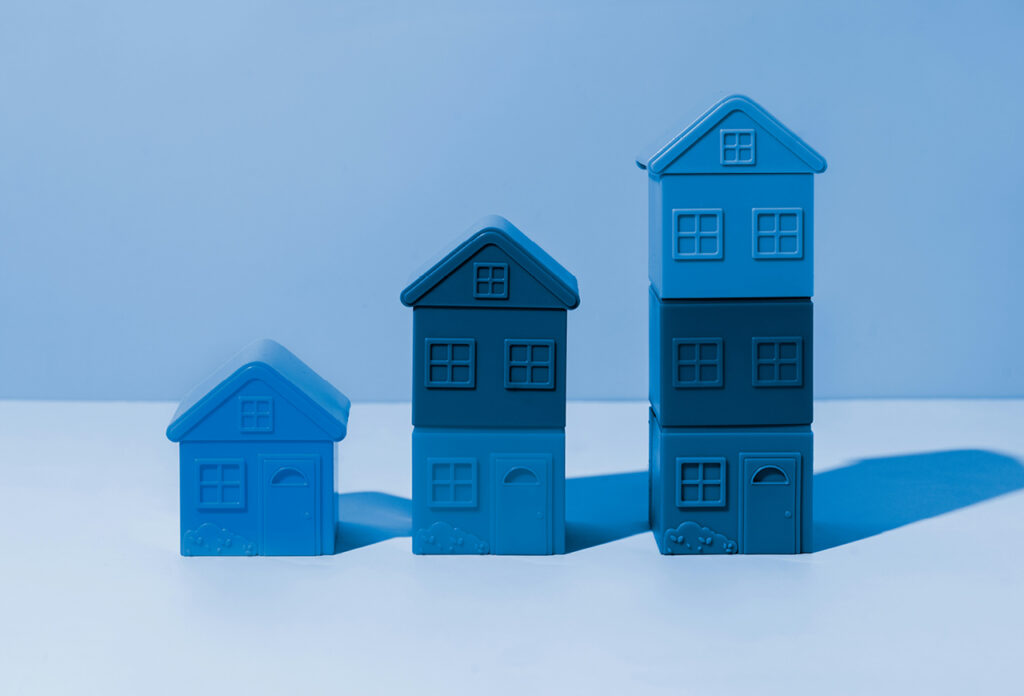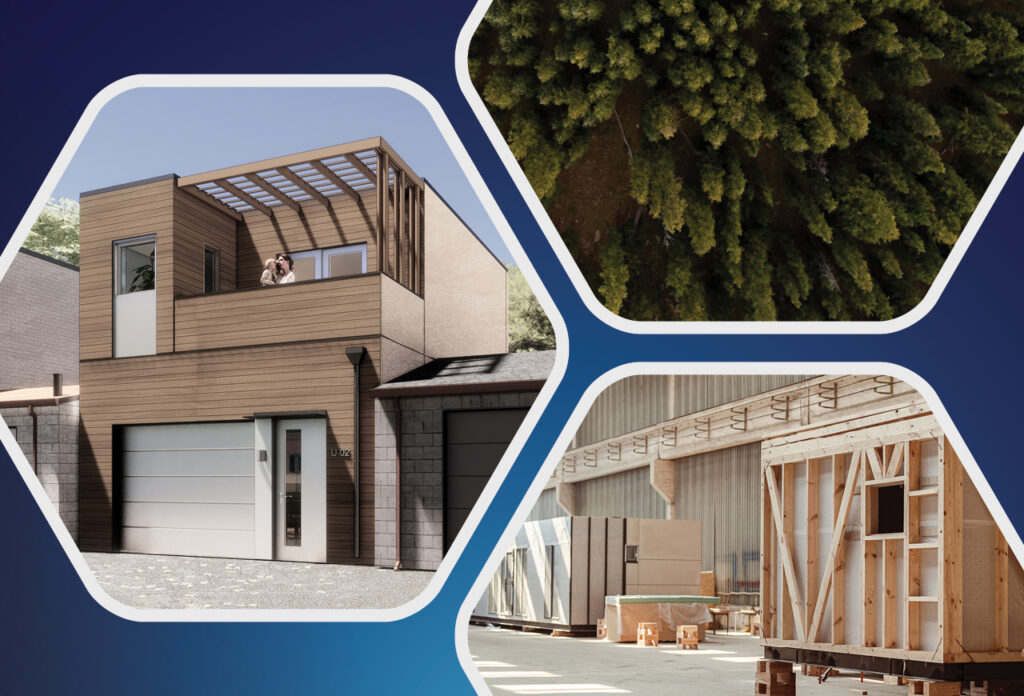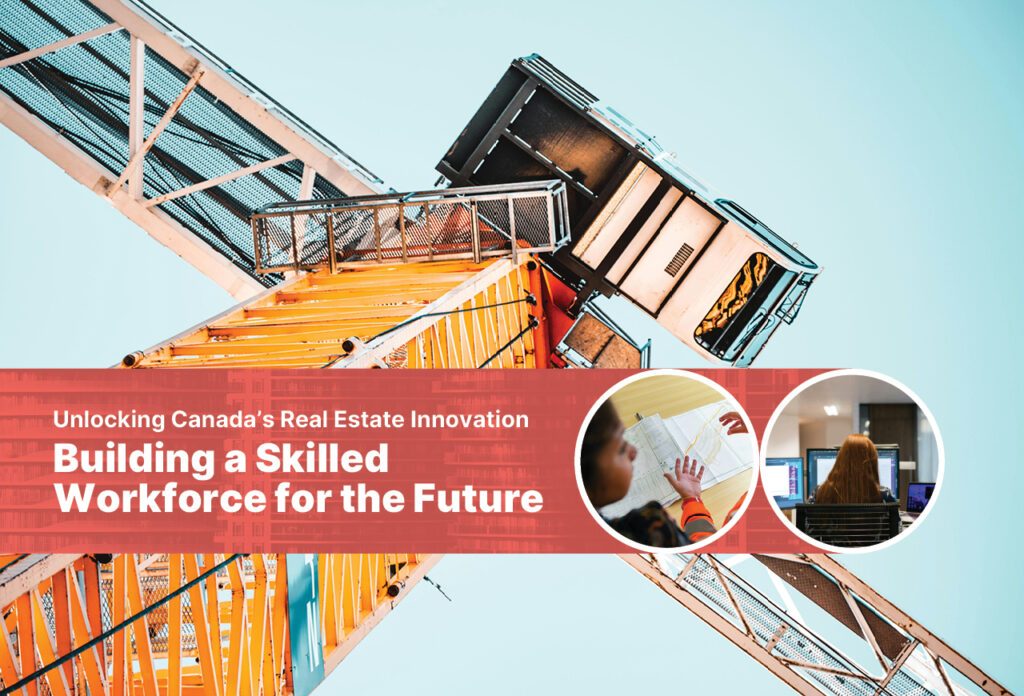A recent study found that extreme weather events cost the Canadian sector over $18 billion between 2010 and 2019. Climate change is no longer a distant threat, but a pressing reality demanding innovative solutions from the real estate and construction industries.
The good news? These challenges present an exciting opportunity to create a more innovative, sustainable and resilient real estate sector. The Industry Innovation Agenda, released earlier this year by the Industry Issue + Transformation Council (I+T Council) convened by R-LABS, identifies five key areas for action, with climate change at the forefront.
By embracing innovation, Canadian companies can not only meet our ambitious climate goals, but also build a future where our communities are better protected from extreme weather events, and our buildings are more energy-efficient and cost-effective.
Lowering Real Estate Related Carbon Emissions
Canada has an aggressive emissions reduction agenda, aiming to reduce emissions by 40-45% below 2005 levels by 2030. The real estate sector plays a vital role in reducing emissions, as four separate sources of real-estate-related carbon emissions are relevant to this target:
- Emissions from building construction, including the embedded carbon in the materials.
- Emissions from the land use changes caused by construction
- The energy efficiency of and type of energy being used by buildings
- Transportation emissions
To reach Canada’s ambitious climate goals, the real estate sector must set aside business-as-usual and find new ways to innovate building materials, energy efficiency and infrastructure.
Building to Withstand Weather
In addition to reducing the sector’s carbon footprint, climate change will necessitate Canadian innovators to design buildings and communities better to withstand the effects of increased extreme weather events such as storms and flooding.
The financial costs here are substantial and growing. The Canadian Climate Institute has estimated that, from 2010 to 2019, the insured losses from extreme weather events exceeded $18 billion, and the Insurance Bureau of Canada found that insurable losses in 2022 exceeded $3 billion. The losses in 2022 were the third highest on record despite no significant single catastrophic event. Losses occur from events such as wildfires, flooding and storms.
And that is not to mention the human costs of these tragedies.
Innovation the key to securing Canada’s climate resiliency and economic prosperity
The need for carbon reduction and the costs associated with damage caused by extreme weather create the market conditions for innovators to develop new products, processes and services such as:
- Smart building technology and passive house design principles to realize energy efficiencies
- New and recycled building materials such as bio-based composites or pre-fabricated solutions
- On-site energy generation and distribution through solar panels and microgrids
- Deep retrofits to optimize existing building stock.
Broader education, specialized expertise and better data also present opportunities for innovators.
Canada is not the only country grappling with these issues. Innovation in this sector also creates opportunities for Canadian entrepreneurs to lead the way with export potential. Similarly, the rest of the world, like Canada, is dealing with extreme weather events exacerbated by climate change.
Building a Sustainable Future, Together
While innovation may be the underpinning of the ability for Canada’s real sector to meet our ambitious climate goals and create a healthier, more sustainable future for generations to come, the transition won’t happen overnight.
It requires collaboration across all levels – government, industry leaders, innovators, and consumers.
As the world’s only venture studio specializing in real estate, R-LABS connects experienced founders with industry partners to solve the broad, systemic challenges facing the industry. Whether you’re an entrepreneur with a bright idea or an established industry partner looking to invest in innovation, the future of our industry needs you.
If you have an idea or are looking to invest in innovation, we want to hear from you!



